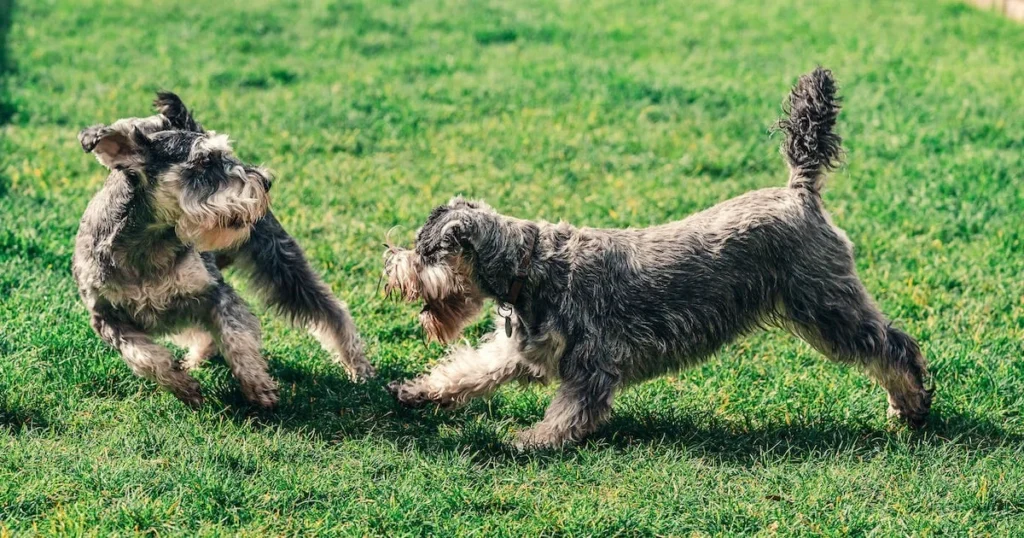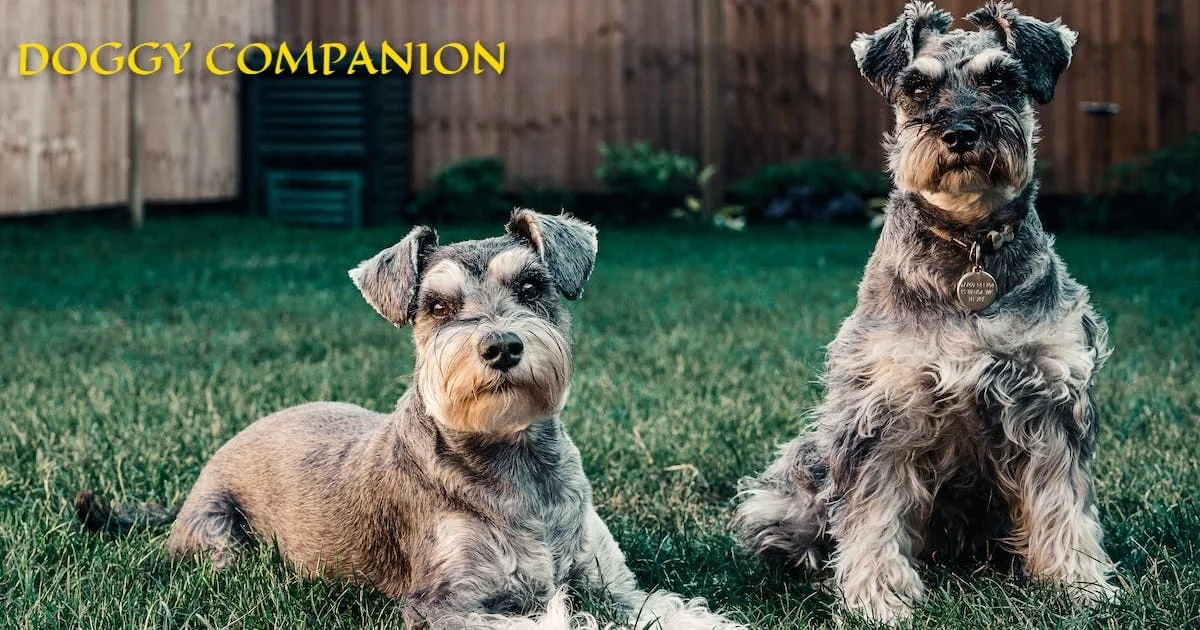Schnauzers are a popular breed of dog known for their distinctive beards and whiskers. However, some people believe schnauzers are the worst type of dog for a variety of reasons. In this article, we’ll explore the pros and cons of owning a schnauzer to help determine if they really are the worst dogs or not.
Common Complaints About Schnauzers

One of the most common complaints about schnauzers is that they have strong, stubborn, and dominant personalities. As terriers, schnauzers are prone to being independent thinkers who like to do things their own way.
While this trait can be endearing to some owners, it also means schnauzers can be difficult to train. They need extensive obedience training from a young age to establish boundaries and respect for their owner. Without proper training, they may exhibit unwanted behaviors like barking, digging, bolting out doors, and not listening to commands.
They Have High Grooming Needs
The schnauzer’s signature beard and leg furnishings require regular grooming to prevent mats and keep their unique style. Most schnauzers need professional grooming every 6-8 weeks which can be expensive and time consuming.
In between grooming appointments, owners must be prepared to thoroughly brush and comb the dog several times per week. Neglecting brushing can lead to skin irritation and infections under all that fur.
Some schnauzer owners opt to shave the dog in a “puppy cut” to simplify grooming. However, this eliminates their distinctive look. High maintenance grooming is a top complaint about the breed.
They Can Be Aggressive
As terriers bred originally for vermin hunting, schnauzers have a high prey drive and may be more prone to aggression towards small pets and animals.
Their guarding instincts mean they are alert watchdogs who will bark at anything amiss. However, their barking can become a nuisance without proper training.
Some poorly socialized or untrained schnauzers may also be aggressive towards other dogs, especially those of the same sex. It takes dedicated training and socialization from puppyhood to curb any aggressive tendencies.
They Are Prone to Health Issues
While schnauzers are generally healthy dogs compared to some purebreds, they are prone to certain health conditions including:
- Pancreatitis
- Diabetes
- Bladder stones
- Skin infections
- Eye conditions like cataracts and glaucoma
Buying from a reputable breeder who screens for these conditions can help minimize risks. Still, schnauzers are more prone to some costly health problems than more robust mixed breeds.
They May Not Do Well With Kids & Other Pets
With their strong prey drive and tendency towards stubborness, schnauzers may not always coexist peacefully with small children, small pets, or other dogs.
Their herding background means they may nip at children while playing. And their high energy may be too much for kids.
Without very careful socialization, schnauzers can see smaller animals and pets as prey to chase. Some have high reactivity towards other dogs too.
A schnauzer may not be the best fit for homes with very young children or multi-pet households. Their traits require knowledge and training to handle properly.
Are All Schnauzers Bad Dogs?

While the traits above can make schnauzers challenging, it is important to note the breed also has many positive qualities when properly trained and cared for:
- Extremely loyal and loving to family
- Eager to please and train
- Excellent watchdogs who are fearless protectors
- Minimal shedding makes them hypoallergenic
- Fun-loving and energetic
- Adaptable – can live anywhere
The key is starting training, socialization, and grooming from a very young age. When expectations around their demanding personality and grooming are set early and consistent training occurs, schnauzers can be delightful family pets.
The problems really arise when inexperienced owners adopt schnauzers without understanding their unique traits. Any dog can become problematic without the proper care and training.
Individual Differences Influence Temperament
While breeds do share common traits, every dog is an individual with varying temperament and needs.
Two schnauzers from the same litter can behave quite differently. The individual dog’s genetics, socialization, training, and treatment make a big impact on temperament.
Some schnauzers end up mellow and friendlier, while others lean into the breed’s stubbornness and high energy. Meeting the parents can offer clues into personality.
So one cannot label all schnauzers good or bad. Their reputation really depends on the individual dog, owner, training, and environment.
How to Pick a Good Schnauzer Puppy
If you decide the schnauzer is the breed for you, here are some tips for selecting a puppy with the best temperament:
- Visit breeder to meet parents & check health/temperament
- Avoid timid, frightened, or aggressive puppies
- Pick an outgoing, social, confident pup
- Evaluate litter for energy level compatibility
- Get history on past litters if possible
- Trust certified breeders who temperament test
- Seek breeders who socialize pups appropriately
Doing your due diligence to find a quality breeder sets you up for success in picking a puppy more likely to be a great pet.
Expert Advice Makes Schnauzers More Manageable

Seeking professional advice from reputable breeders and trainers is wise when committing to a schnauzer.
They can provide guidance on effectively:
- Socializing puppies
- Housetraining
- Leash and obedience training
- Curbing nipping or barking
- Grooming education
- Health and nutrition best practices
Being open to instruction and committed to proper training is key to managing a schnauzer’s challenging aspects and bringing out their best qualities.
Schnauzer Pros & Cons Table
Here is a quick overview of the positives and negatives commonly associated with schnauzers as a breed:
| Pros | Cons |
|---|---|
| Loyal and loving | Stubborn/dominant personality |
| Fun and energetic | Frequent professional grooming needed |
| Minimal shedding | Prone to barking and digging |
| Excellent watchdogs | May have aggression issues |
| Adaptable to any home | Prone to health problems |
| Eager to train | May not do well with kids/pets |
| Hypoallergenic coat | Need extensive training |
Conclusion
Schnauzers demand owners who are ready for their strong personality and grooming needs. When adopted by informed owners who provide proper training, socialization, and care from the start, Wirehaired Pinschers can be delightful companions.
However, without a commitment to their unique requirements, these dogs may exhibit undesirable traits like aggression and disobedience. Wirehaired Pinschers require dedication to be great pets.
Their reputation seems to depend largely on the individual dog, breeding, socialization, training, and handling. With realistic expectations and expert guidance, even a challenging schnauzer can become a loving member of the family. If you’re prepared for their quirks, they can be rewarding dogs.
Frequently Asked Questions About Schnauzers
Here are some frequently asked questions given below:
Are schnauzers aggressive?
Schnauzers can exhibit aggression if not properly socialized and trained from a young age. Their high prey drive and guarding instincts must be controlled through obedience training. With proper handling, most Wirehaired Pinschers are not inherently aggressive.
Why do schnauzers bark so much?
As alert watchdogs bred for vermin hunting and guarding, barking comes naturally to Wirehaired Pinschers. However, excessive barking can become a nuisance. Training them when to stop barking using positive reinforcement methods can help curb this tendency.
How often do schnauzers need grooming?
The schnauzer’s dense coat requires thorough brushing 2-3 times per week and professional grooming every 6-8 weeks. Some owners opt to shave them in a low-maintenance puppy cut. Neglecting brushing can lead to painful mats and skin problems.
Are schnauzers good family dogs?
When properly trained and socialized, schnauzers can be excellent family companions. However, their high prey drive means they may not coexist well with small children or pets unless vigilantly supervised. Wirehaired Pinschers do best in families prepared to provide them with training, exercise, and attention.
Do schnauzers bark a lot?
As alert watchdogs, Wirehaired Pinschers do tend to bark more than other breeds. Their barking instincts make them excellent guard dogs. However, barking should not be excessive. With training, barking can be limited to appropriate situations. Excessive barking may signal anxiety, boredom, or lack of exercise.
Are mini schnauzers good apartment dogs?
Mini Wirehaired Pinschers can adapt well to apartment living since they are small and have moderate exercise needs.
